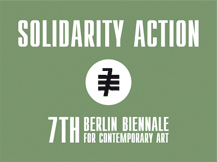In art the concept of the contemporary, the analysis of reality, both subject and objective, has changed. The media have changed, communication runs wild and all this has an influence on the concept of obsolescence. Experimentation is associated with entertainment and, as a result, absorbed by the drive of consumption. All this has happened in a very short time and does not allow us to learn artistic experimentation, nor to trigger debates that might be useful to nurture processes of development, as happens in a democratic society. There are no longer political and social tensions that bring about a moments of breaking with the past, generating renewal. The concept of the group no longer exists, or no one believes in it anymore, though it was fundamental for the generations of the Sixties and Seventies. We are lacking a logic of management for the spaces set aside for art in general: the tendency is to spend public funds uselessly, only to make the container (the museum) spectacular, transforming it into political propaganda for the reigning party, without paying any attention to the contents. The economic resources to finance programming or production of artistic projects do not exist. There is no logic of acquisitions, which would be fundamental to conserve and preserve research, which is of vital importance for artists. The cause of this general breakdown is too much servility to politics and the lack of expertise of the people placed in charge of museums, because the choice of a director, for example, no longer depends on professional credentials, but on the will of the politician of the moment. This is why the present cultural crisis and the instability of the museums, cinemas and theaters reflect the political situation of the government. It’s about time that politics took an active and positive part in the cultural growth of the country, turning to competent people capable of streamlining and renewing infrastructures, of finding alternative resources, involving collectors, entrepreneurs and non-profit structures, while lowering IVA (value-added tax). I hope politicians will actively participate in the cultural development of the country, using part of the funds of their parties to invest in research for cultural and artistic development. In this way it would be very easy to support quality art production and bring back vitality to the whole cultural system, making the realization of a project not depend only on the artist, because it is impossible to think that projects can be done without economic resources and without a direct relationship with institutions. Artists in Rome need financing to support their work in a constant way, but they run into increasing difficulties in establishing a relationship with public institutions, because there is no intermediary capable of communicating with artists and with entities like the Regional or the Provincial government. This figure could be fundamental to restore vitality to the whole cultural fabric of the city and to promote it on an international level.
GIUSEPPE PIETRONIRO
Artist. Lives and works in Rome.


